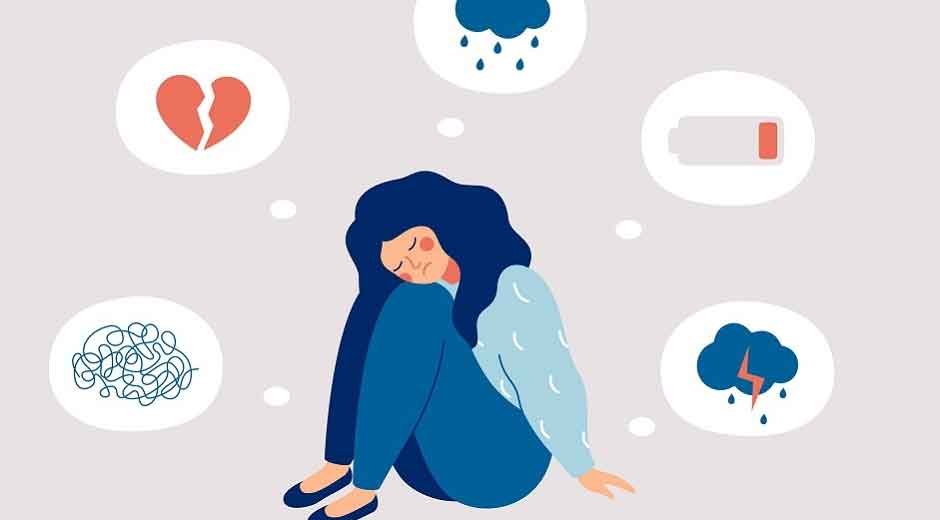Trauma leaves marks far beyond the immediate moment of crisis, deeply affecting an individual’s mental health. When someone experiences a traumatic event, it can alter the way their mind processes emotions, memories, and everyday stressors. One of the conditions that can develop after trauma is Post-Traumatic Stress Disorder (PTSD), a mental health challenge that can disrupt daily life and relationships. The effects of PTSD are complex, influencing not just emotions but also physical well-being and social connections. We will explore how trauma impacts mental health through the lens of PTSD, focusing on what it means for those who experience it and the pathways to understanding its effects.
Key Aspects of PTSD and Its Influence on Mental Health
- The Nature of Trauma and Its Lingering Effects
Trauma can come in many forms—such as accidents, violence, natural disasters, or prolonged exposure to distressing situations—and the type of event does not limit it. Still, it has the emotional impact it leaves behind. When a person experiences trauma, their brain responds in a way that prioritizes survival, often triggering heightened states of alertness and anxiety. For some, these responses ease over time, but for others, they persist and evolve into PTSD.
The constant feeling of being on edge, reliving the traumatic experience through flashbacks or nightmares, and avoiding reminders of the event are hallmark features. This ongoing stress response can disrupt the brain’s natural ability to regulate emotions, making even small challenges feel overwhelming. The way trauma rewires the brain affects how individuals interpret the world, often fostering a sense of danger where there may be none, which complicates recovery and affects overall mental health. Access to Friendly Mental Health Treatment plays a crucial role in helping individuals navigate these challenges and begin the healing process in a supportive environment.
- Emotional and Cognitive Impact of PTSD
PTSD alters emotional regulation and cognitive functions in profound ways. Those living with it may struggle with intense feelings of fear, anger, guilt, or shame. It can be challenging to feel safe or in control, which often leads to feelings of isolation and withdrawal from social environments. Cognitive symptoms include difficulty concentrating, memory problems, and distorted beliefs about oneself or others. These symptoms create a feedback loop where distressing thoughts increase emotional pain, which in turn impairs cognitive abilities.
The resulting mental fog can affect decision-making and productivity, leading to challenges in personal and professional life. This emotional and cognitive disruption also heightens vulnerability to other mental health conditions such as depression and anxiety disorders, deepening the impact of trauma on the individual’s well-being.
- Physical Health Consequences Linked to PTSD
The influence of PTSD extends beyond the mind, frequently manifesting in physical health issues. Chronic stress from unresolved trauma can lead to increased inflammation, heart problems, gastrointestinal issues, and a weakened immune system. Individuals might experience symptoms such as headaches, muscle tension, and sleep disturbances, all of which contribute to fatigue and lower quality of life. The mind and body connection is powerful, and when PTSD symptoms keep the body in a heightened state of alertness, it becomes difficult to find true rest or healing. This somatic burden can make managing PTSD more challenging because physical discomfort often worsens emotional distress, creating a cycle that impacts overall health.
- The Role of Avoidance and Its Consequences
One of the coping mechanisms often seen in PTSD is avoidance—efforts to steer clear of people, places, or thoughts that trigger memories of the trauma. While this behavior might provide temporary relief, it can also limit a person’s ability to engage with their environment and maintain meaningful relationships. Avoidance can lead to social isolation and prevent individuals from seeking support or confronting their trauma in a therapeutic setting. Over time, this withdrawal compounds feelings of loneliness and despair, making recovery more difficult. Avoidance also keeps the brain focused on the trauma rather than allowing it to process and integrate the experience, which is an essential step toward healing.
- The Importance of Support and Understanding
Trauma and PTSD affect not only the individual but also their support network, including family, friends, and communities. Misunderstanding or minimizing the impact of trauma can hinder recovery and increase feelings of shame or frustration. Providing a supportive, non-judgmental environment is crucial for those coping with PTSD. Encouraging open conversations about trauma and mental health helps reduce stigma and fosters a sense of connection, which is vital for healing. Support systems can also help individuals access resources and treatment options, which often involve therapy and, in some cases, medication to manage symptoms. Understanding trauma’s deep effects and responding with empathy can make a meaningful difference in a person’s journey toward recovery.
Trauma profoundly impacts mental health, with PTSD representing one of the most significant ways this influence manifests. The condition affects emotions, cognition, physical health, and social engagement, creating a multifaceted challenge for those who experience it. Recognizing the complex nature of PTSD and fostering environments of support and understanding are key to helping individuals navigate their path to healing. By expanding awareness and compassion around trauma and its effects, society can better address the needs of those affected and promote resilience in the face of adversity.













